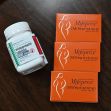“Those who are struggling with the complex decision to get an abortion deserve support and trustworthy guidance – not lies and misinformation,” said California Attorney General Rob Bonta (AG) as he filed a lawsuit against an anti-abortion group and a chain of five pregnancy centers that he claims use fraud and misleading claims to advertise an unproven and largely experimental procedure that lacks “any credible scientific backing and has potential risks for patients.”
In a “Complaint for Permanent Injunction, Civil Penalties, and Other Equitable Relief,” the People of the State of California sued Heartbeat International, Inc. (HBI), RealOptions Obria (RealOptions) and Does 1-100 on September 21. Bonta’s complaint asked the Superior Court of the State of California for Alameda County court to “permanently or preliminarily enjoin” the defendants “from making any untrue or misleading statement in violation of California’s Business and Professions Code Sections 17204 and 17535.” It also stops the defendants from engaging in unfair competition and asks for civil penalties of $2,500 against each defendant, as well as other penalties the “court deems, just, proper, and equitable.”
Defendant Heartbeat International is a 501 (c) (3) that operates “the most expansive network of pregnancy resource centers” in the world with more than 3,000 of what they call “pregnancy help locations,” 2,000 of which are in the United States. It also owns and operates the Abortion Pill Network and its hotline. Defendant RealOptions is also a 501 (c) (3) that operates five clinics in California. The complaint charges both defendants with engaging in a “conspiracy, common enterprise, and common course of conduct” in order to violate the law.
The complaint begins with a scientific explanation of abortion through medication, which it says is often “the preferred method of exercising …reproductive choice.” It explains that this method uses mifepristone and misoprostol, which are “safer than Penicillin, Viagra, and even some over-the-counter drugs like Tylenol.” These drugs, it states, are 95 percent effective. Patients choosing abortion through medication must take two different drugs. The first dose is mifepristone and the second is misoprostol, which must be taken 24 to 48 hours later.
It goes on to describe the mental challenges a small number of women may face during a medical abortion. It estimates that .004% may become anxious and unsure. It is during this difficult time that the defendants “provide them with false and misleading statements,” that they claim can reverse the effects of mifepristone. HBI and RealOptions call this “abortion pill reversal” or “APR.” They tell patients that APR, which is composed of the drug progesterone, will reverse the effects of the first dose if taken within 72 hours. But the complaint disagrees, stating, “Not a single credibly designed medical study has verified HBI’s claims.”
The complaint continues, “There is no evidence showing that mifepristone can be “reversed” or that the APR ‘protocol’ contributes to the continuation of a pregnancy” and “defendants know this, but they regularly continue to advertise and promote APR.” They also cite flawed and misleading reports to support their claims.” In addition, without any scientific proof, defendants tell patients that APR is safe and effective if used within 72 hours of the original mifepristone dose.
APR providers also fail to tell patients about studies that show the significant health risks that can occur if they stop taking mifepristone halfway through its prescribed dosage. In essence, the complaint charges, “Defendants use emotionally vulnerable individuals who come to them in the midst of a gut-wrenching life choice as subjects in experiments to determine whether APR is safe and effective. Defendants attract these individuals through multiple misrepresentations and pressure them by claiming they must start treatment as quickly as possible, further exploiting these individuals’ heightened emotional state.”
Defendants offered a review of APR that was conducted by two California physicians who studied only ten patients, had no control group, and failed to report the outcomes of all participants. When evaluated, the American Medical Association’s Journal of Ethics found the study used flawed data and neglected to discuss whether APR had any negative effects on those who took it. In addition, there was no “institutional oversight,” which is necessary when experimenting on human subjects.
Several additional well-respected peer-reviewed medical journals agreed that the study by the California physicians was “unmonitored,” and the American College of Obstetricians and Gynecologists, among many other respected organizations, did not support the use of APR.
Bonta’s office also monitored HBI’s website and hotline. They found continual use of the terms “reverse” and “reversal” as well as numerous claims that APR was “effective.” It also gave misleading information about risks. Similar problems occurred with their “chat line,” patient “training materials,” and posted answers to frequently asked questions. Since RealOptions uses HBI’s materials, they also continue to mislead.
For most women and their partners, abortion is a difficult and emotional decision. Facing lies, misrepresentations and inaccurate medical information only exacerbates their difficulties. Real support and trustworthy guidance are critical. But, if the complaint is accurate, they are not getting it from HBI and RealOptions. The Superior Court of the State of California in Alameda County now has an opportunity to make sure that those seeking abortions get the truth, the whole truth, and nothing but the truth.






